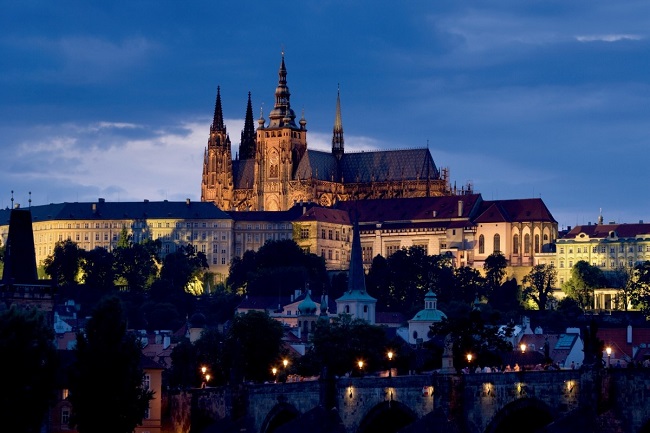
Universities and UNESCO advisors reject changes to the heritage protection law
 |
Prague - According to university experts and UNESCO advisors, the proposal by Prague councilors to allow city heritage officials to make decisions regardless of the opinion of the National Heritage Institute (NPÚ) poses a threat to Czech cultural heritage. This follows a statement sent today to CTK by representatives of institutes and departments of art history at universities and the International Council on Monuments and Sites (ICOMOS), which is an advisory body of UNESCO. Experts have called on the Prague council to reject the proposal.
The change to the heritage care law advocated by the Prague council, according to its proponents, is intended to primarily speed up work on properties that are not cultural monuments but are located in protected heritage zones. For example, the owner of a cultural monument or a designer would not be required to consult with the NPÚ regarding preparatory and project documentation during its preparation. According to the NPÚ, the change would mean the elimination of heritage care, and the reasons for the change cited by the city hall are considered misleading.
The Czech National Committee of ICOMOS has also expressed disagreement with the proposal, which, in addition to the international organization UNESCO, collaborates in the area of cultural heritage care with the NPÚ and the Ministry of Culture. The change to the law proposed by Prague councilors is deemed by ICOMOS experts to be completely non-systemic and potentially destabilizing to heritage care across the republic. “It only aims to paralyze the current system, based on multi-layered cooperation of the decisive executive and expert components of the field, which poses a serious threat to our cultural heritage,” stated committee representatives in the announcement.
Academics are also opposed to the change in law. “To deprive the NPÚ of the ability to express itself regarding the restoration of monuments would mean irreparably damaging the entire system of heritage care, which is based on the professional approach of the NPÚ,” states the announcement, which is signed by Richard Biegel, director of the Institute of Art History at Charles University’s Faculty of Arts, and another eight directors and heads of institutes and departments. According to them, the NPÚ guarantees not only expertise but also the independence of heritage care. They consider the proposal to limit its powers to be non-systemic and purely opportunistic.
“It is an obvious reaction to the fact that the NPÚ’s opinions were contrary to the positions of the city hall's heritage department or the opinions of the city leadership,” they stated. They consider recent examples such as the push for underground garages in the pedestrian zone at Můstek or the demolition of a building at the corner of Opletalova Street and Wenceslas Square.
“The Prague heritage reserve is a monument of UNESCO world cultural heritage. Excluding the NPÚ from decision-making on monuments with the highest international status is absurd and indefensible,” stated the academics' announcement. According to ICOMOS, the UNESCO World Heritage Committee has several times issued decisions that rather recommend strengthening the role of the NPÚ and express concerns about preserving the appearance of Prague’s historic core. According to representatives of universities, the proposal by Prague councilors also fundamentally threatens heritage care in all significant protected areas, including Český Krumlov, Telč, and Slavonice.
The proposal states that it is meant to apply to buildings that are in protected areas and are also not cultural monuments. However, according to academics, it excludes the NPÚ from decision-making regarding all cultural monuments, including the category of national cultural monuments. Therefore, without the involvement of a specialized heritage institution, they believe that restorations such as those of Karlštejn, Charles Bridge, or Villa Tugendhat would be carried out. “We therefore call on all involved to do everything in their power to prevent its adoption,” they added.
The proposal for the amendment still needs to be discussed by the councilors. Only then can the city send it to the Chamber of Deputies. Whether the deputies will address it will depend on their decision. Prague councilors will meet for their next session on September 6.
The English translation is powered by AI tool. Switch to Czech to view the original text source.
1 comment
add comment
Subject
Author
Date
Jednohlavá péče
Vích
31.08.18 02:25
show all comments











